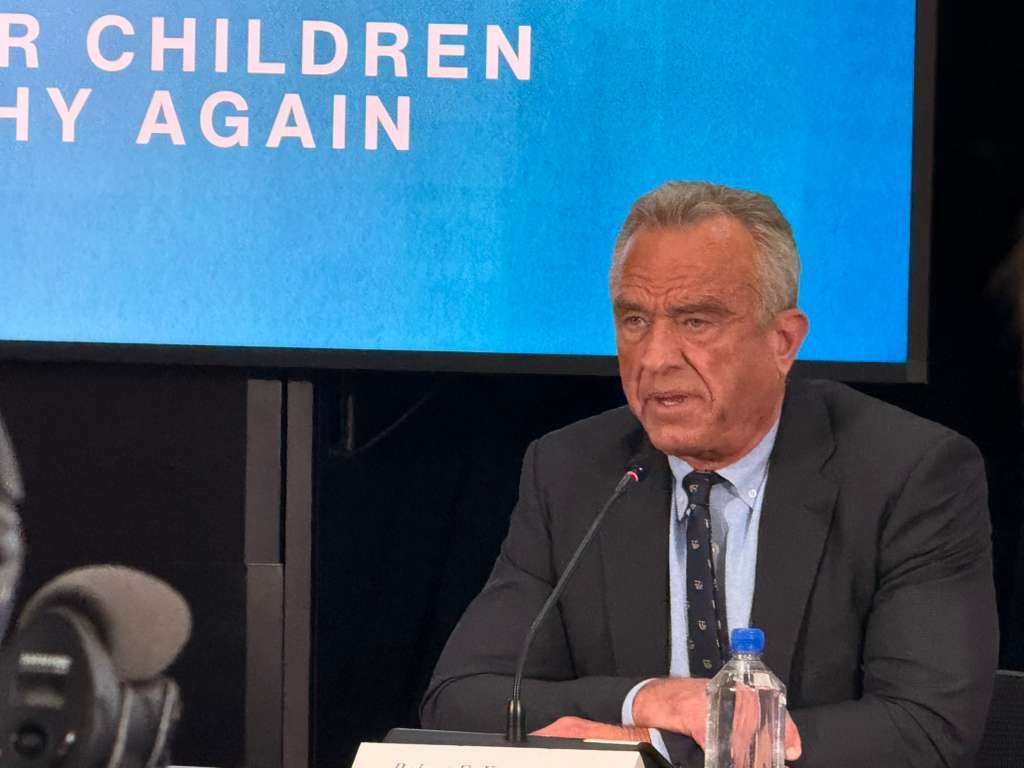Washington, DC – The United States Health and Human Services Secretary Robert F. Kennedy Jr has unveiled a national strategy aimed at reversing the country’s worsening childhood chronic disease trends, citing Europe as an example of how to deliver quality healthcare more cheaply.
The Make Our Children Healthy Again Strategy, released by the Make America Healthy Again (MAHA) Commission, outlines more than 120 initiatives spanning regulatory reform, scientific research, food policy, and private sector engagement. The Commission, chaired by RFK Jr., was established to investigate the root causes of rising chronic illnesses among children and to propose systemic solutions.
“This is the most sweeping reform agenda in modern history,” Kennedy said at the launch event, citing plans to overhaul food and health systems, increase transparency, and prioritise evidence-based science over corporate interests.
Kennedy sought to step forward after his bruising encounter last week at the hands of the Senate Finance Committee. He faced fierce criticism from Democrats and several Republicans for his vaccine views and leadership chaos after he fired the Centers for Disease Control and Prevention.
During the hearing, Louisiana Republican Bill Cassidy, a gastroenterologist and a deciding voice in Kennedy’s confirmation, accused him of denying people access to updated COVID vaccines. “You’re wrong,” Kennedy shot back.
Europe, a model comparison
At the strategy launch, Kennedy slammed US healthcare costs and systemic decline, citing Europe as an example of how to deliver quality healthcare more cheaply. Asked by US public broadcaster PBS how the mental health dynamics of the strategy were linked to gun violence, Kennedy pointed to Switzerland’s 23-year absence of school shootings despite significant gun ownership.
The strategy includes a series of executive actions targeting food safety, environmental exposures, and healthcare metrics. Among the proposed reforms are stricter definitions and labelling of ultra-processed foods, enhanced oversight of prescription drug advertising, and elevated standards for infant formula. The plan also calls for reforms to Medicaid quality metrics to better reflect health outcomes.
Farm to fork
In a policy pivot mirroring Europe’s ‘Farm to Fork’ strategy, Agriculture Secretary Brooke Rollins emphasised the role of American farmers and ranchers in the initiative, announcing voluntary commitments from major food brands to eliminate artificial dyes and new pilot programs to promote regenerative agriculture.
The strategy also seeks to streamline regulatory processes, including easing barriers to farm-to-school programs and modernising the U.S. Food and Drug Administration (FDA) and the United States Environmental Protection Agency (EPA) approval pathways for drugs and agricultural products. Public awareness campaigns focused on nutrition, screen time, and paediatric mental health are also central to the plan.
Flanking Secretary Kennedy, EPA Administrator Lee Zeldin and FDA Commissioner Marty Makary both endorsed the strategy, highlighting its potential to shift the healthcare system from reactive treatment to proactive prevention. National Institutes of Health (NIH) Director Jay Bhattacharya described the report as a “blueprint” for government-wide action to improve child health outcomes.
The MAHA Commission’s announcement comes amid growing bipartisan concern over the long-term economic and societal costs of chronic disease, which now affects a significant portion of the US paediatric population. The initiative reflects a broader effort by the Trump administration to reposition public health policy as a cornerstone of national renewal.
The launch event featured senior officials from across the federal government, including representatives from HHS, EPA, NIH, FDA, United States Department of Agriculture (USDA), and the White House’s economic and science policy offices, in a sign of the breadth of policy integration at play
(bms)





